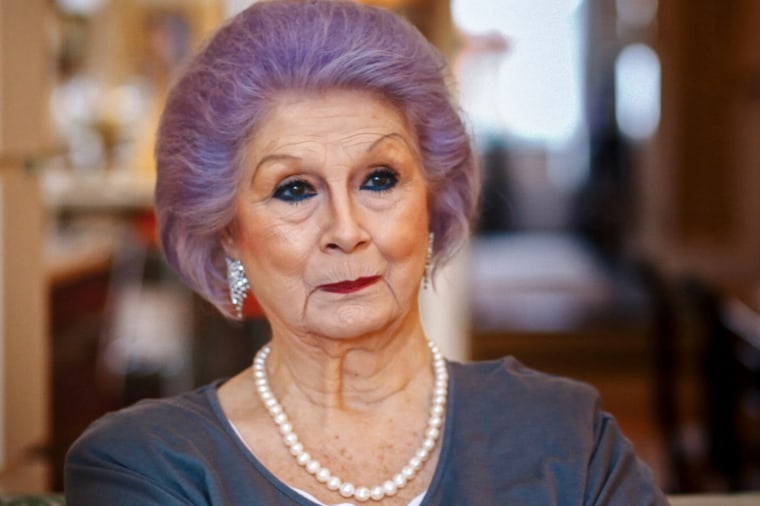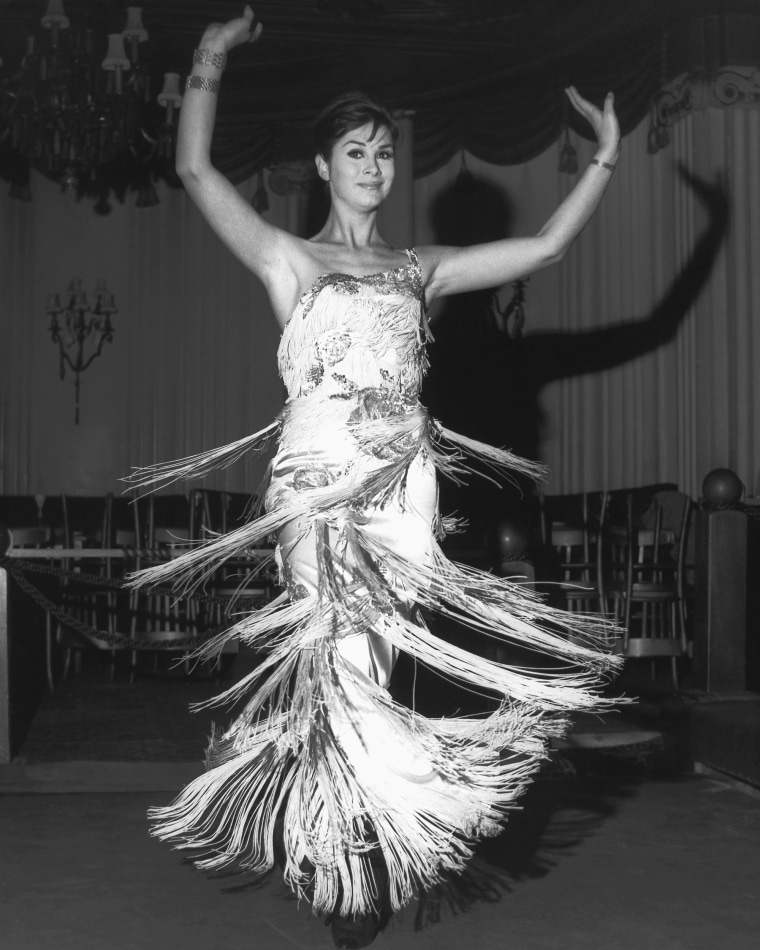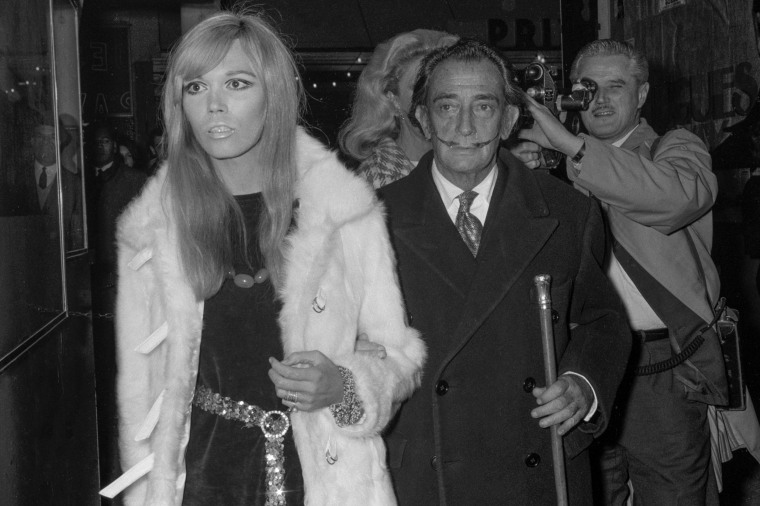“Enigma,” a documentary coming to HBO Tuesday, details the glamorous, complex and at times tragic stories of two longtime icons of the transgender community — though one of them has denied being transgender.
The film dives into the history of Le Carrousel, a Parisian nightclub that became a safe space for transgender women to perform in the 1950s and was frequented by famed artists and entertainers, including Salvador Dali and Edith Piaf.
April Ashley and Peki d’Oslo were two of the club’s popular performers and also among the first trans women to have gender reassignment surgery, which Ashley, who died in 2021, discussed in archival interview footage in the film.
Their paths diverged after they left Le Carrousel. Ashley became a model for Vogue until she was outed as trans in 1961 and then went through a public and contentious divorce with her husband in 1970. The trial led a judge to legally declare her sex as male, setting a precedent that for decades defined trans people’s sex in the United Kingdom as their birth sex. Ashley, who did many public interviews about the case and her identity, became widely known as a trans rights icon.

Peki D’Oslo, on the other hand, didn’t use that name after leaving Le Carrousel. Those who worked with her said her name off the stage was Amanda Tap and that she changed her last name to Lear upon marrying a British architect in the ‘60s. For decades, Lear has faced questions about her identity, but she has always denied the connection and the idea that she is transgender. She has also denied knowing Ashley, who said they were close friends.
In interviews with “Enigma” director Zackary Drucker, Lear, now 85, maintained that the photos of D’Oslo that look nearly identical to her as a young model are not her, that she never worked at Le Carrousel, didn’t know Ashley and is not transgender. Drucker said she decided to show the women’s two stories side by side because Ashley’s “story shed so much light on Amanda’s.”
“You see the scale of the resistance that April experiences, and the way that she’s forever treated as an oddity because of her being so clear about who she was,” Drucker said, describing Ashley as “a beacon of not being compromised by a world determined to disempower you.”

On the other hand, Drucker said, as a trans woman herself, she has felt beholden to the trans community, and Lear’s story is interesting to her because “there’s something fascinating about somebody who’s like, ‘No, I’m just going to be me. I’m going to create who I am from the ground up, and I have no tethers, no allegiance, there’s no feeling of responsibility to past friendships, to historical facts.’”
Drucker added, “It’s just one of many survival strategies for people like us.”
A representative for Lear did not immediately return a request for comment.
Drucker said telling Lear’s story sensitively was “a dance.”

“It was totally creating something that there has been no precedent for,” Drucker said. “Amanda has been asked these questions before, but not in a compassionate way, and not from somebody who loves her.”
Drucker said Lear was her “original archetype” when she was 18 years old and had a sense that she was trans. She went to the library and printed out a photo of Lear and put it on her wall, “realizing that I could potentially be a beautiful woman one day.”
The questions Lear often faced about her birth sex were exploitative, Drucker said, and yet Lear would use them to her advantage to generate more attention and press for herself. For example, her 1980 song “Fabulous (Lover, Love Me)” features the playful lyrics “Surgeon built me so well nobody could tell that I once was somebody else.”
“She’s used it, and that in and of itself is a lesson in navigating publicity and media,” Drucker said. “She’s kind of a master class in self-invention.”

The documentary shows how Lear became a successful disco singer in the ‘70s and ‘80s and also developed a relationship with Dali.
Ashley went on to open a successful restaurant in London, and the legal precedent set by her divorce case was later overturned by the U.K.’s Gender Recognition Act of 2004, which allowed trans people to change their sex on their birth certificate. Ashley was able to change her legal gender in 2005, just before she turned 70.
“She established the pillars that we stand on, of being unashamed of who you are and standing in your truth against all odds, even if you’re swimming upstream,” Drucker said.
The documentary also features interviews with former Le Carrousel performers now in their 80s, Marie-Pierre Pruvot, known as Bambi, and Carla Follis, who also goes by her stage name, Dolly Van Doll. Additionally, the film showcases burlesque artist and advocate Allanah Starr, who described Bambi as a mother figure, and London-based trans historian and activist Morgan M. Page.

Drucker said she learned several lessons from speaking with Lear, including that “to know thyself is the work of a lifetime.”
The film features interviews with trans women across generations, and, as a result, Drucker said it offers powerful perspectives for trans people today as conservative leaders in the U.S. have enacted a historic number of measures to restrict trans rights.
“This moment will pass,” Drucker said. “These women survived decades of opposition and resistance and were publicly humiliated over and over again. These women are monuments of resilience.”
She added, “We will find solutions, and the more we can look through time, the sharper our tools become.”
“Enigma” debuts Tuesday at 9 p.m. ET on HBO and will be available to stream on HBO Max.